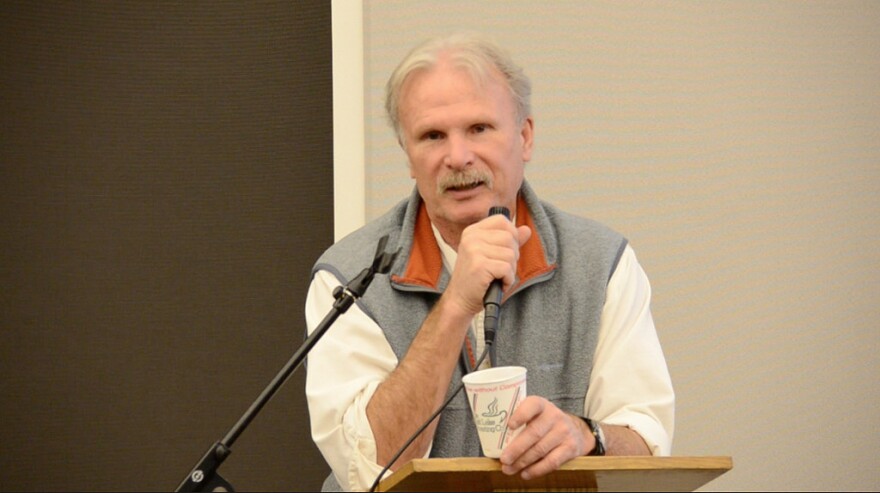A forest ecologist says that requests for more forest thinning to reduce the threat of fire danger are misguided.
The number of wildfires burning across the west has prompted some lawmakers to call for more timber harvest to reduce the threat of wildlife by reducing the number of dead and dying trees, many of them suffering the effects of bark beetles.
One ecologist says that the real issue is a warmer climate, and calls for more thinning are just a way to please the timber industry.
George Weurthner is the author of 30 books, and holds degrees from University of Montana, UC Santa Cruz, and University of Oregon .
He says the reason we are experiencing more fires in recent years is longer , drier summers, and not because of trees killed by bark beetles, like so many are claiming.
Weurthner says it’s actually healthy trees that burn in fires, as opposed to older dead or dying ones, because they contain more pitch.
Weurthner goes on to say, “what burns in a forest fire, are the fine fuels, not the large trees. That’s why we have snags left after a forest fire. So that dead trees, either from a previous forest fire, or bug kill or whatever are less flammable than green trees under those extreme fire conditions.”
Weurthner takes issue with claims that we have more acres burning today than in the past:
“They compare the present time with the 1940’s ,50’s and 60’s and 70’s which were cooler and moister than present. If you go back to the turn of the last century to around 1900, you find we had very similar conditions, and we had many acres burning, like the 1910 fire that burned across Idaho and Montana, 3 million acres. Long before there was fire suppression, and other things they use as their rationale.”
Weurthner says thinning forested areas can actually make them more fire-prone, by opening them up for increased drying by the sun and increased wind penetration.


